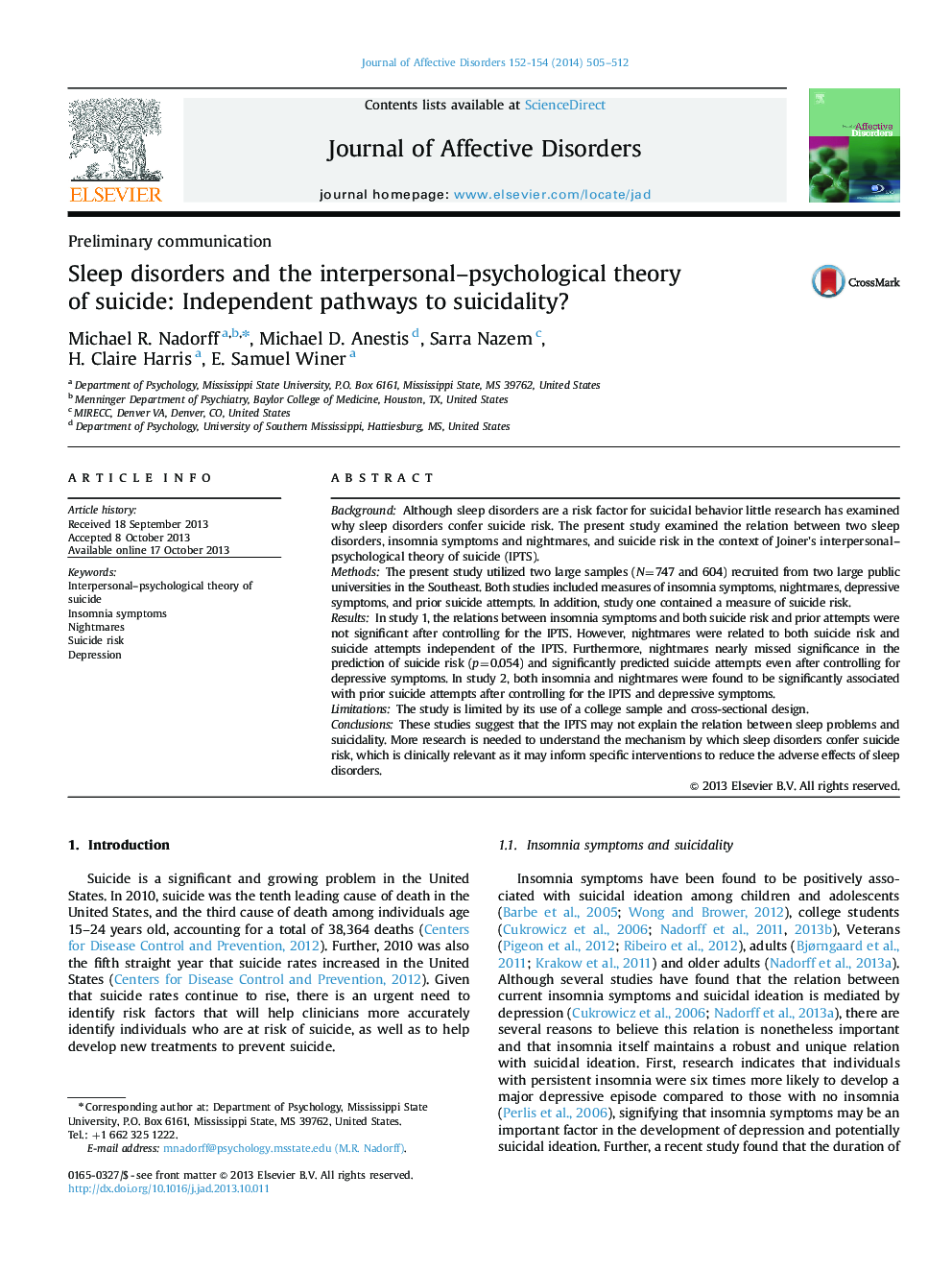| Article ID | Journal | Published Year | Pages | File Type |
|---|---|---|---|---|
| 6233255 | Journal of Affective Disorders | 2014 | 8 Pages |
BackgroundAlthough sleep disorders are a risk factor for suicidal behavior little research has examined why sleep disorders confer suicide risk. The present study examined the relation between two sleep disorders, insomnia symptoms and nightmares, and suicide risk in the context of Joiner's interpersonal-psychological theory of suicide (IPTS).MethodsThe present study utilized two large samples (N=747 and 604) recruited from two large public universities in the Southeast. Both studies included measures of insomnia symptoms, nightmares, depressive symptoms, and prior suicide attempts. In addition, study one contained a measure of suicide risk.ResultsIn study 1, the relations between insomnia symptoms and both suicide risk and prior attempts were not significant after controlling for the IPTS. However, nightmares were related to both suicide risk and suicide attempts independent of the IPTS. Furthermore, nightmares nearly missed significance in the prediction of suicide risk (p=0.054) and significantly predicted suicide attempts even after controlling for depressive symptoms. In study 2, both insomnia and nightmares were found to be significantly associated with prior suicide attempts after controlling for the IPTS and depressive symptoms.LimitationsThe study is limited by its use of a college sample and cross-sectional design.ConclusionsThese studies suggest that the IPTS may not explain the relation between sleep problems and suicidality. More research is needed to understand the mechanism by which sleep disorders confer suicide risk, which is clinically relevant as it may inform specific interventions to reduce the adverse effects of sleep disorders.
